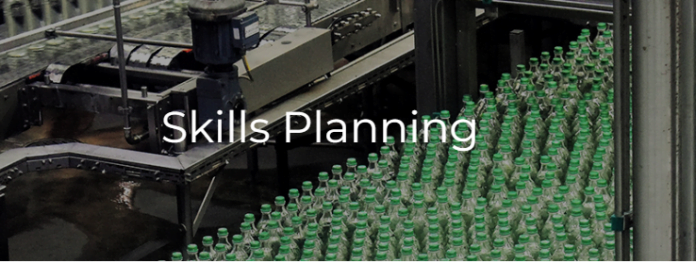YOUTH unemployment remains a significant concern in South Africa, with over 7.5 million young people circumstantially displaced on the job market. Statistics like these indicate that issues of employability and sustainable economic growth are at the core of the crisis. The rise of automated intelligence and connectivity increases productivity in record time. However, automation is replacing the unskilled human labour force, while skill shortages continue to threaten the industries.
There is an urgent need for a highly technical workforce which can create a cooperative environment in which humans and machines work in harmony. Government has also placed great responsibility on the private sector to ensure that workforce training and skills development be integrated at entry level employment stages.
Not everything is doom and gloom however. The South African government has made constitutional strides to support industries in their sustainable development, through the formation of Sector Education Training Authorities (SETAs). In the food and beverage industry, The Food Bev- Manufacturing SETA serves as the custodian of the country’s skill development programme for the food and beverage manufacturing industry.
The SETA has extensive strategic objectives to achieve excellence while ensuring the workforce is transformed and relevant. During skills planning, the SETA is not only responsible for developing a research system that generates credible sector intelligence, but their mission is to also increase employability of workforce entrants, enhance greater entrepreneurship, and to improve the competitiveness of this sector. They do this by supporting employed and unemployed learners to acquire scarce and critical skills in the sector through its learning programmes and various projects. The SETA’s services also benefit small businesses and community and non-profit organisations, contributing to their sustainability by being adequately skilled.
The SETA has established a Chamber Committee in accordance with the South African constitution, to provide expert advice, strategic leadership, and guidance regarding skills development, education, and training in the industry. The committee is divisible by five sub-sectors in the food and beverage manufacturing industry. The sub-sectors a categorised by the SETA as follows:
- Baking, Cereals, Confectionery & Snacks (BCCS)
- Beverage Manufacturing
- Dairy Manufacturing
- Manufacture of Food Preparation Products
- Processed and Preserved Meat, Fish, Fruit and Vegetables
While South Africa’s unemployment figures are at an all-time high, FoodBev Manufacturing SETA is adamant that that through more inclusive and strategic partnerships with NGOs, existing businesses, small or large, levy payers or non-contributors; the aspect of employability can be triumphant in this great economic crisis. Ultimately more agile and sustainable industries will be birthed in future
To partner with the Food and Beverage SETA, to make impactful industrial change visit www.foodbev.co.za or send an email to stakeholderrelations@foodbev.co.za















